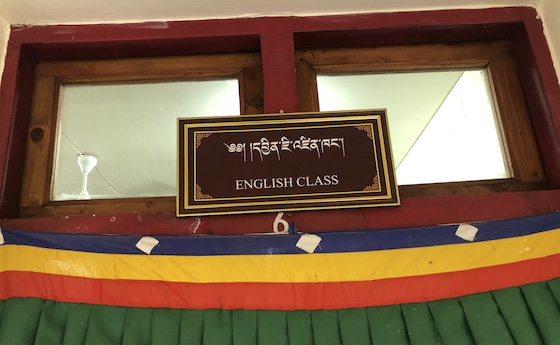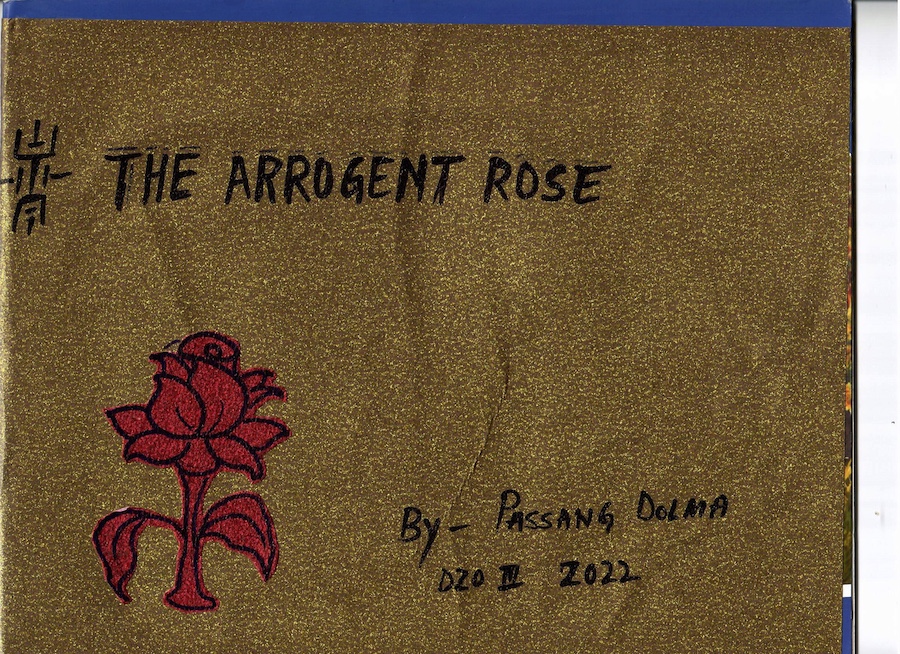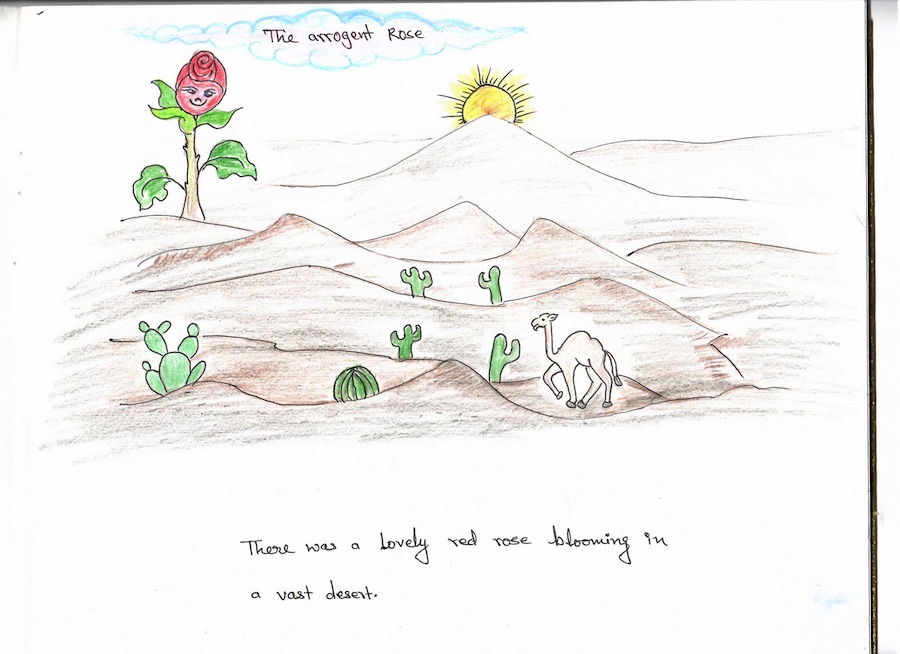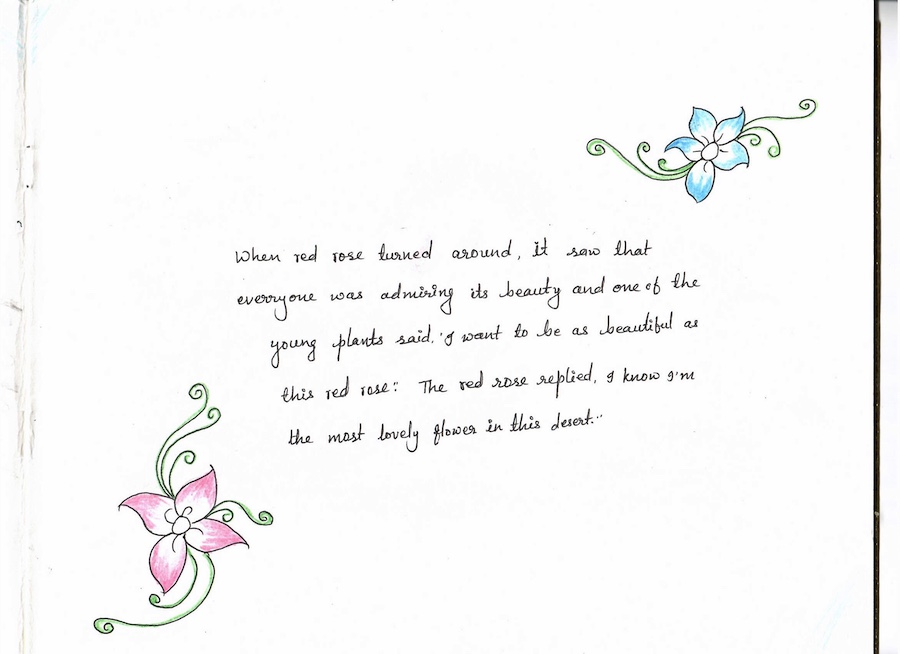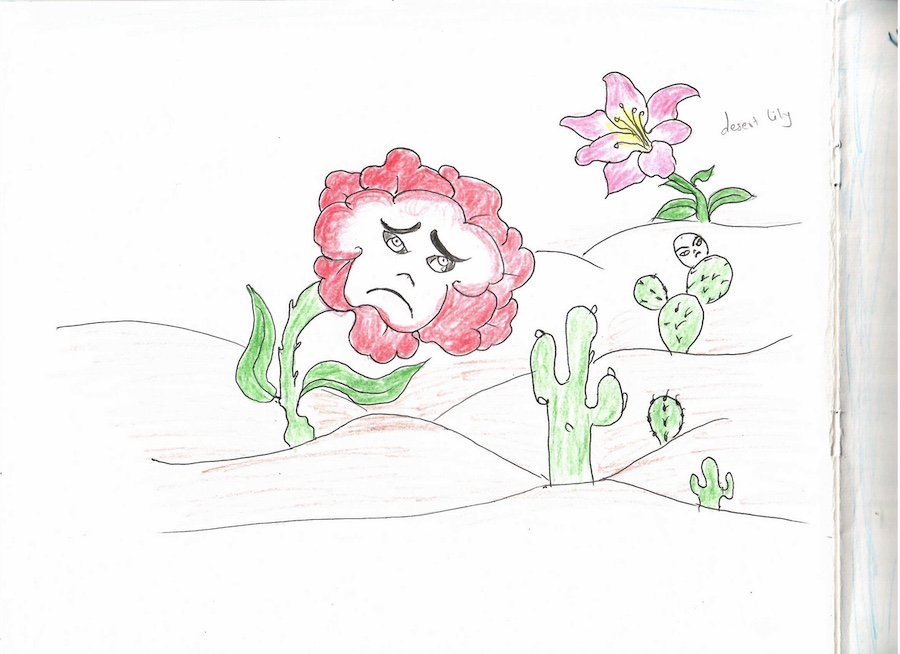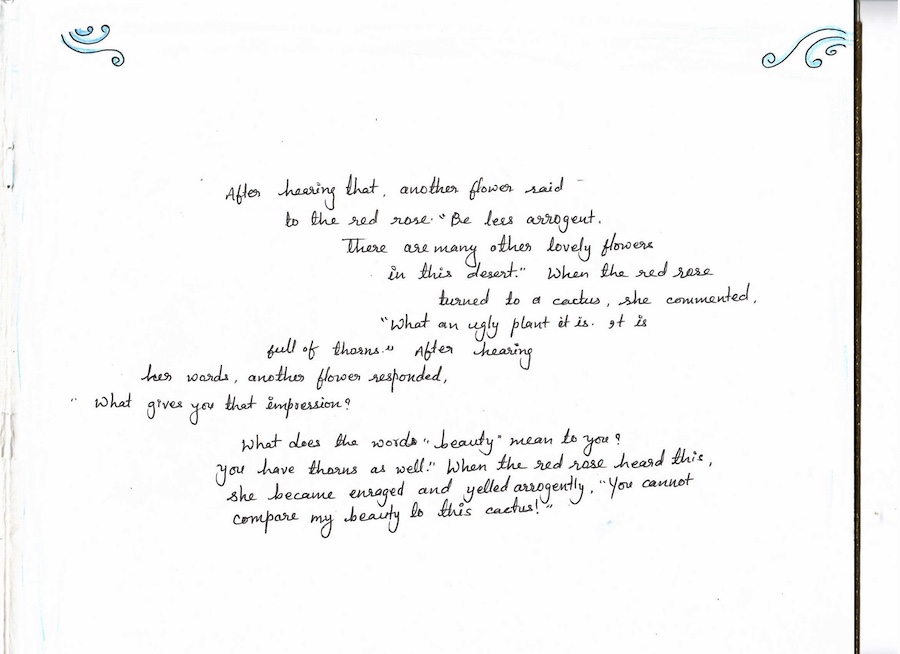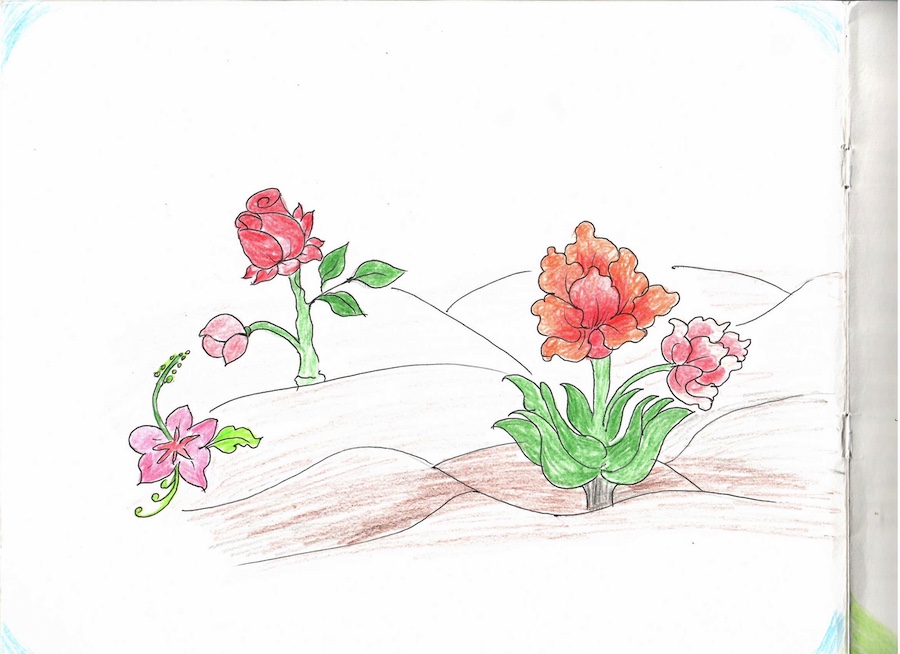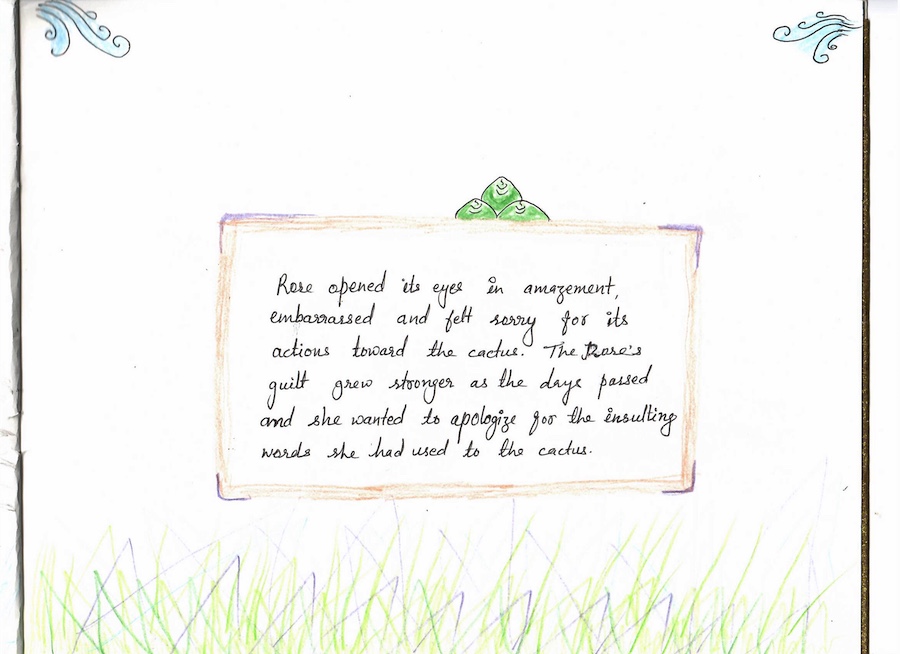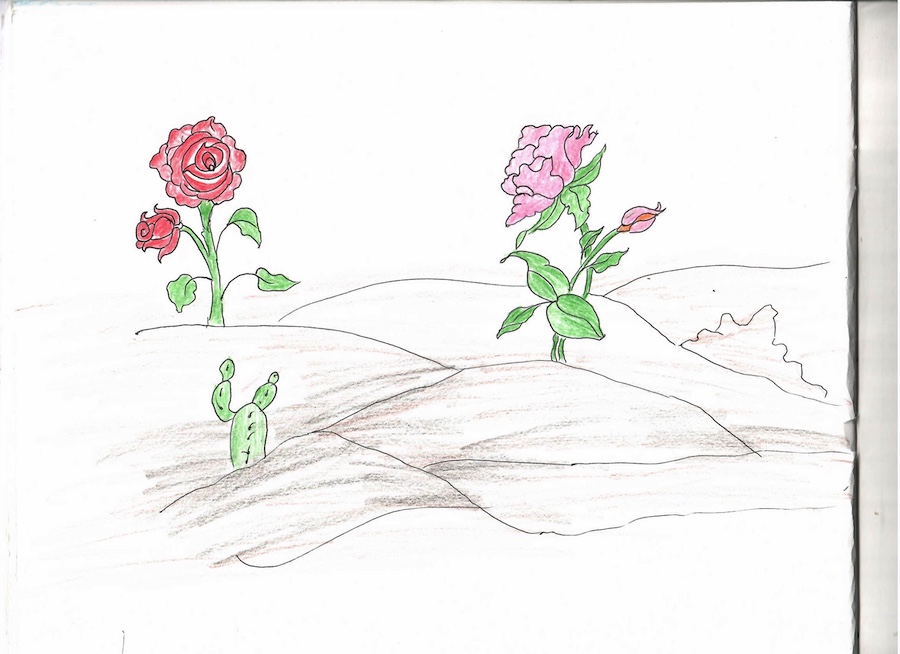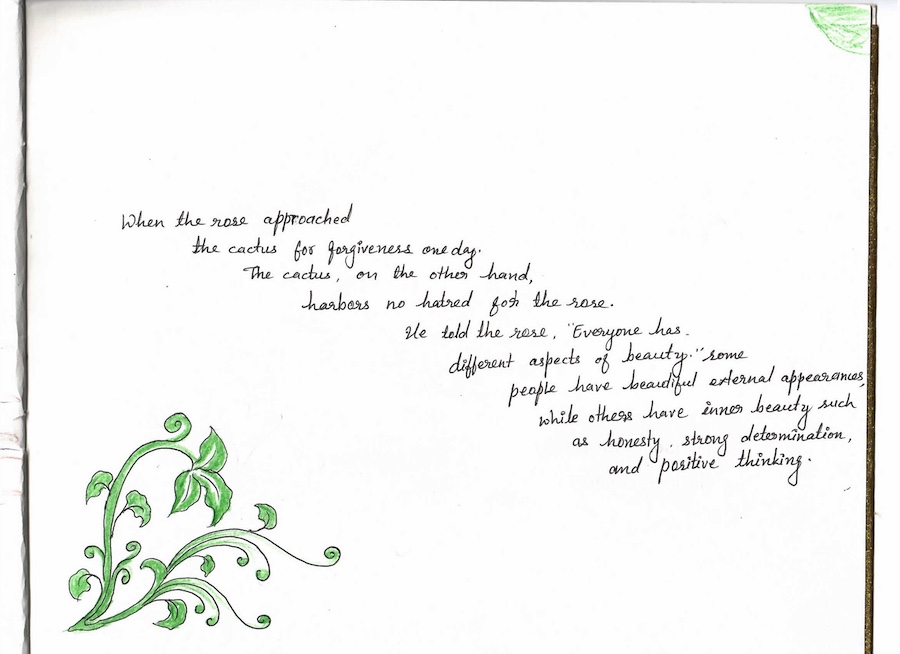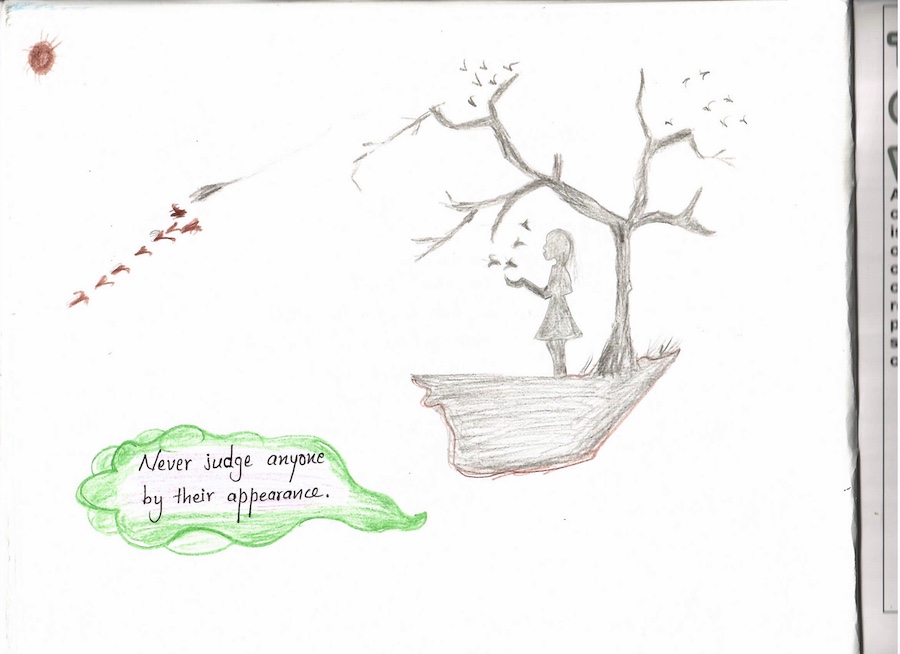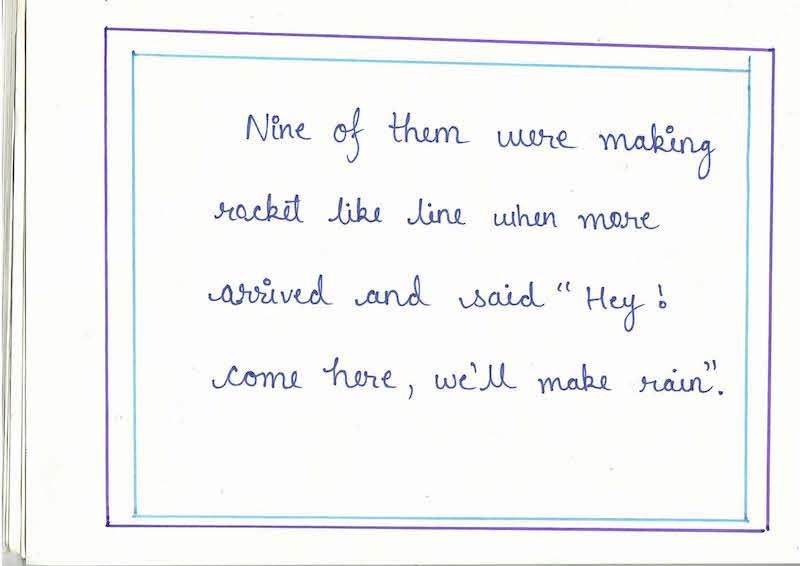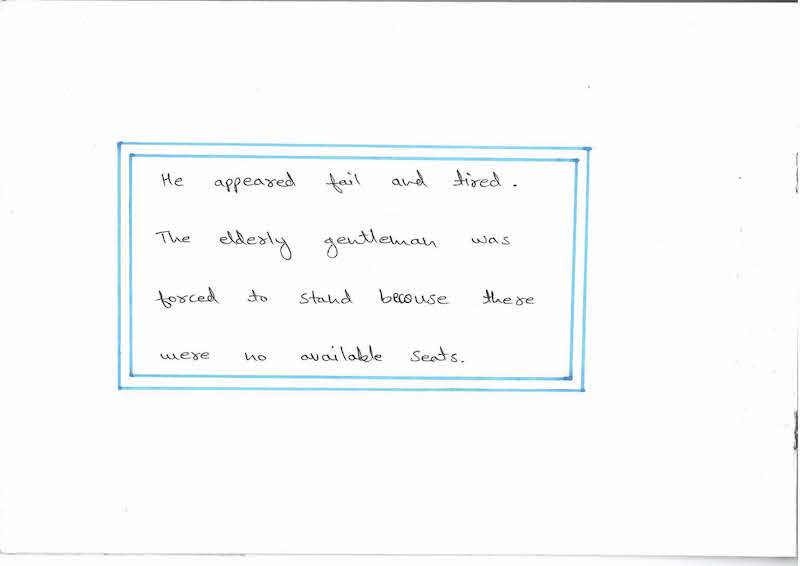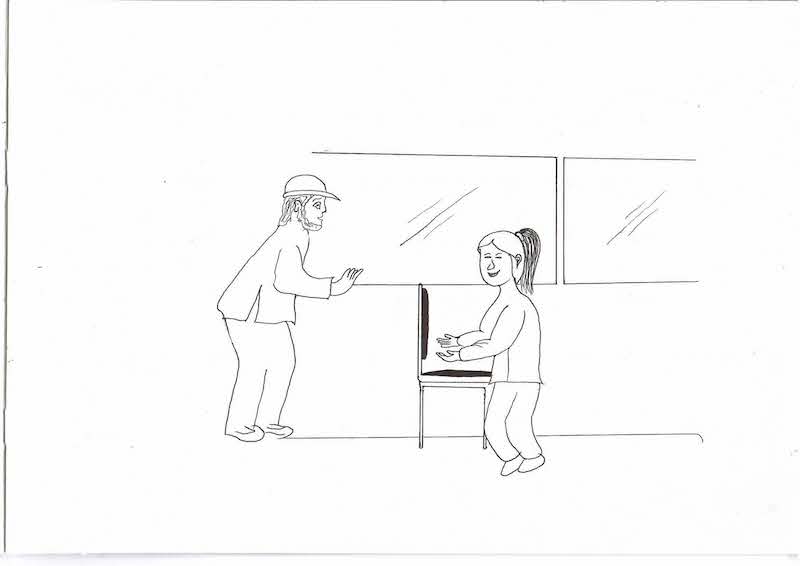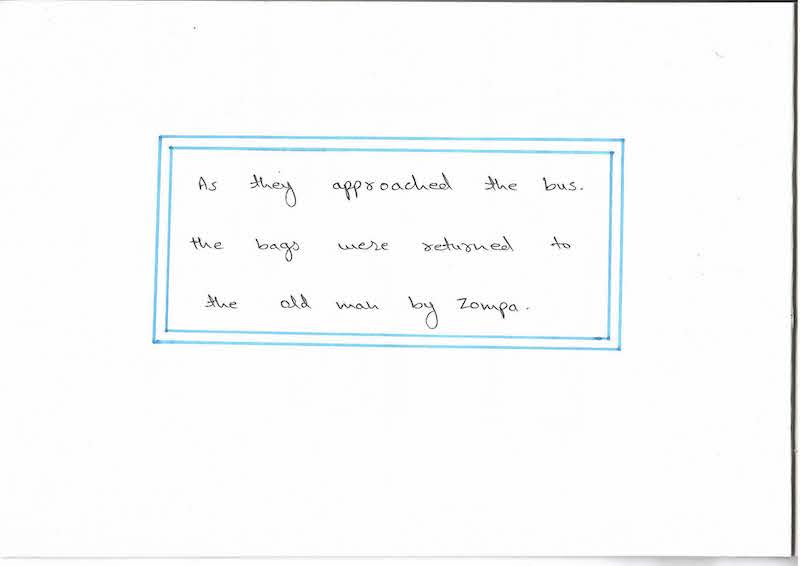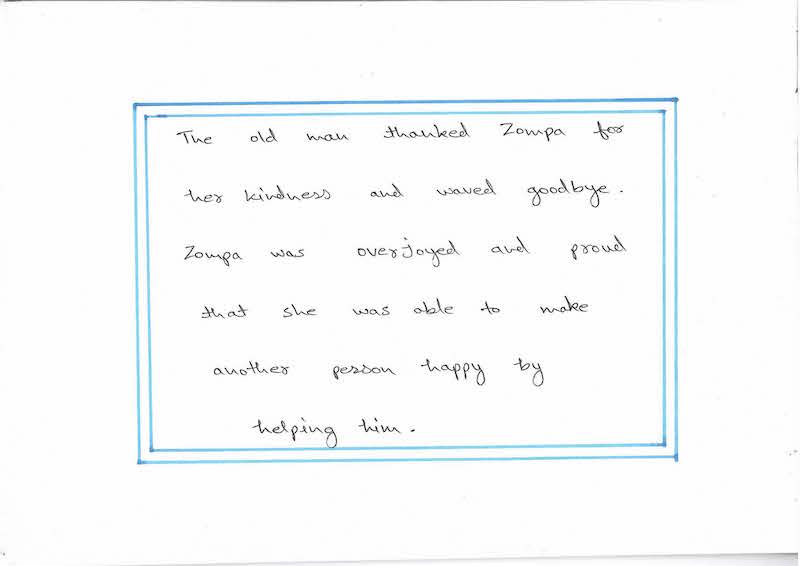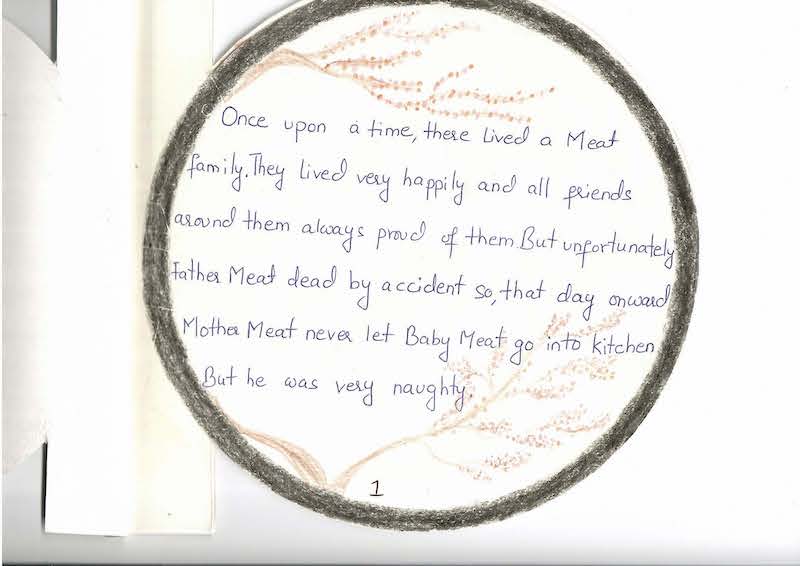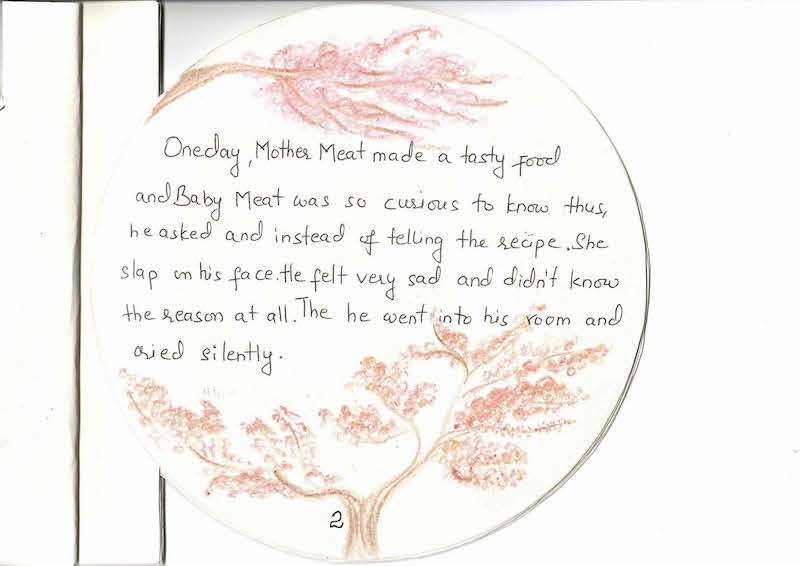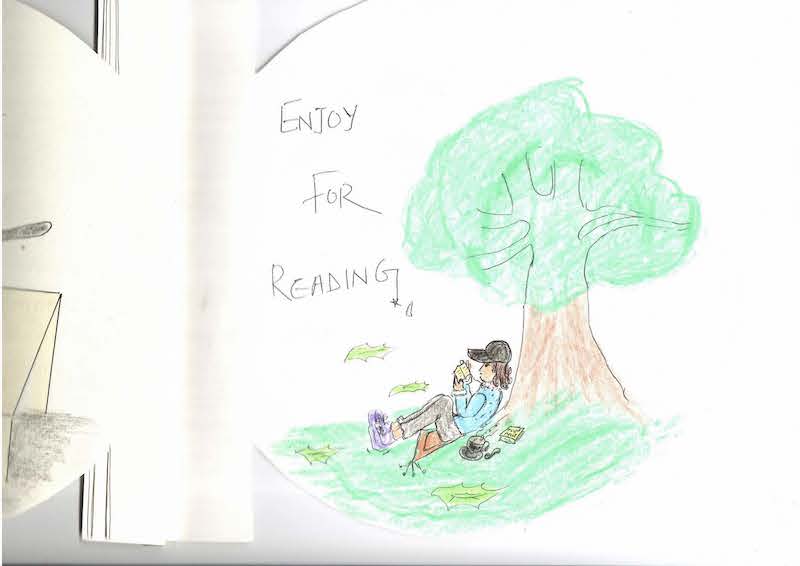Spring marks both a new academic year and intake time at the nunneries in India so it is a good time to share some stories and reflect on the education of Tibetan Buddhist nuns.
Educating the nuns is the core of our work. In the 1980s and 1990s, when hundreds of nuns were escaping from Tibet, the overwhelming majority of the nuns were totally illiterate. Most of the newly arrived nuns had had no education in their own language. While in Tibet they had also been denied education in their religious heritage.
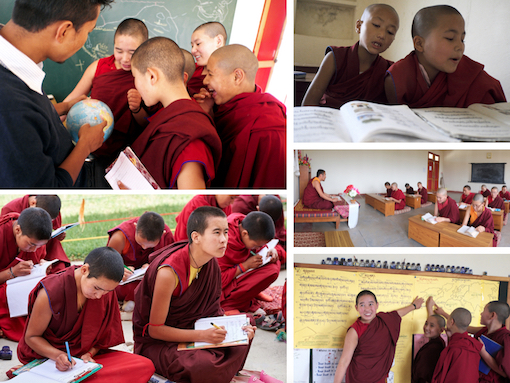
Collage of photos of education of Tibetan Buddhist nuns. Bottom left photo courtesy of Olivier Adam; other photos courtesy of Brian Harris.
The Tibetan Nuns Project created an education program for nuns from the ground up. “Today when I see those nuns who didn’t know how to read and write their own names now have Geshema degrees, it is amazing. In a way, 30 years is a long time, but when it’s creating history it is not very long,” says Rinchen Khando Choegyal, Founding Director and Special Advisor to the Tibetan Nuns Project.
The Tibetan Nuns Project also serves women from the remote and impoverished border areas of India such as Ladakh, Zanskar, Spiti, Lahoul, and Arunachal Pradesh. The women and girls from these areas have traditionally been given far less education than men and boys. The nunneries give them a chance for education that they would not have otherwise.

Photo courtesy of Brian Harris.
Pema’s Story
Pema grew up in Tsum near the Nepal-Tibet border. “Being isolated from towns and cities, there isn’t any school in our village so we are very backward and most of the people are uneducated. They actually don’t realize the importance of getting a good education. I really wanted to go to school, but I didn’t have the opportunity because the school was extremely far away. I had to walk for a whole day and night to reach it and we didn’t have any relatives there or a place for me to stay. Those who had relatives there were able to stay and go to school and become educated. I don’t know about the quality of education that the school provided, but at least those students are getting to learn something.”
“The most courageous thing I think I have ever done was to run away from home to live my dream. I had put forward my desire and wish to become a nun, but my parents never supported my decision and objected strongly to my pleas. I could not find any way to convince them. I tried a lot but failed all the time, so the only option left for me was to run away from home. I brought tsampa (roasted barley flour) to eat so that I wouldn’t have an empty stomach and to stay healthy. I will never forget those days of struggle. I reached Kathmandu and stayed at my friend’s home for one night. She was very welcoming and bought me a ticket to go to Delhi.”
“My brother who is a monk contacted one of the elder nuns at Tilokpur Nunnery and this is how I came here. I feel really lucky to have the opportunity to study in such an institution where everything is taken care of by the institution. Especially, the education facilities are really impressive and very satisfactory. I am very grateful for those who helped me in living my dreams. Now that I am one such lucky nun to study at this prestigious institution, I am studying very hard. Currently, I am learning Tibetan, English, and debate.”

Nuns debating at Tilokpur Nunnery. “Opening up education to the women, particularly in conjunction with training in debate, has been transformative for the nuns,” says Dr. Elizabeth Napper, Tibetan scholar, US Founder and Board Chair of the Tibetan Nuns Project. “Not only have they been given access to the full intellectual richness of their Buddhist tradition but also, through debate, they have been trained to actively engage with it in a way that gives them confidence in their knowledge.”
Rinzin’s Story
Rinzin grew up in a farming family in northern India caring for her family’s chickens and livestock and going to the nearby India school. Her life changed direction when she saw Tibetan Buddhist nuns. “During holidays, I would see nuns coming to their family homes. They look so happy. I would talk to them and they would tell me about their nunnery. I got so fascinated and wanted to become a nun. I had a sudden urge to become a nun.”
“I told my parents, but my mother told me to stay home and go to school. I urged my father to persuade my mother to let me be a nun. Finally, my mother agreed. They advised me to be a good nun.”
Rinzin first joined a Nyingma nunnery at Varanasi, where she studied for five years. “One day, a relative who was a Geshe [a monk with a doctorate in Tibetan Buddhism; the female equivalent is a Geshema] came to visit at the nunnery and stayed there for a while. He noticed that there was no debate on Buddhist philosophy. He told us younger nuns who were from the same village that debate is important and that we should learn it. I, along with a few other nuns agreed, and he took us to Dharamsala, where he told us to choose between Geden Choeling Nunnery and Dolma Ling Nunnery and Institute.”

Tibetan Buddhist nuns at Dolma Ling Nunnery and Institute sitting exams
“I chose Dolma Ling Nunnery and Institute because I have a relative who is a nun there. I heard from her that Dolma Ling is a good place to study, as it is quite strict and the education facilities are good. I thought it would be a good place to study, so I decided to go to Dolma Ling Nunnery.”
“In 2017, the nunnery was admitting new nuns so I went through an interview and written exam. I passed and I became a nun here. Dolma Ling Nunnery is a beautiful and quiet place. In February 2018, I got ordained along with my classmates in the presence of His Holiness the XIVth Dalai Lama. He advised us to study well and to abide by the oath.”
“Currently, I am studying in Duta Class. We learn basic Tibetan and debate. I am having a bit of difficulty with debate because it is a new subject for me. I think I will be okay because I have my classmates and teachers who will guide me. I wish to do my best and get the Geshema degree.”
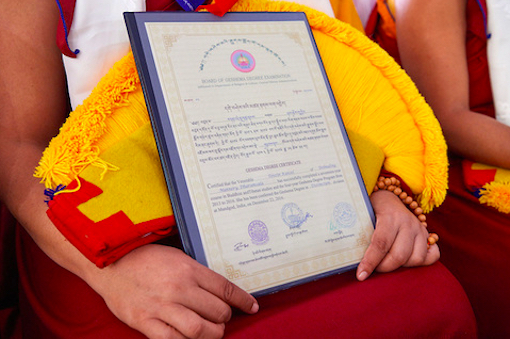
Nun holding her Geshema certificate. Photo courtesy of Olivier Adam.
What the Tibetan Nuns Study
A primary goal of the Tibetan Nuns Project is to assist nuns in reaching the same level of education as the monks. Each of the four traditional schools of Tibetan Buddhism has its own specific curriculum and degrees attained, but much is shared. All are based on the teachings of the Buddha and the Indian commentaries that developed to explicate them.
Exactly which commentaries the nuns most closely rely on varies between traditions as do the number of years of study, but there is uniformity as to the basic topics. Thus, all the nuns study:
- Logic and Epistemology, which provide the basic tools for advanced philosophical study;
- Perfection of Wisdom for understanding of the Buddhist path;
- Middle Way for understanding of Buddhist philosophy; and
- Tantra for the final level of teachings.
At most nunneries supported by the Tibetan Nuns Project, courses are also offered in Tibetan language, English, and computer skills, as well as in ritual arts such as sand mandalas and butter sculpture. The smaller nunneries in more remote areas are at earlier stages in the educational process.
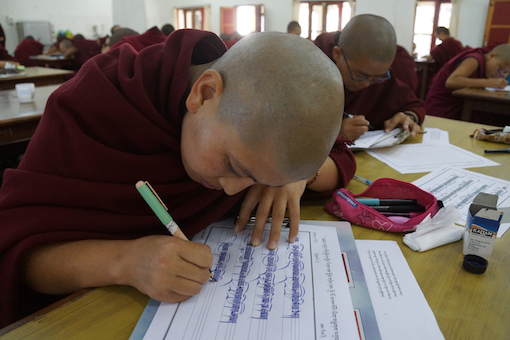
Tibetan Buddhist nuns taking part in a Tibetan calligraphy competition
In addition to providing basic educational requirements, the Tibetan Nuns Project seeks to elevate the educational standards and the position of women within the monastic community. To prepare the nuns for positions of leadership and moral authority in a culture that is going through a very challenging transition, it is essential to combine traditional religious studies with aspects of modern education.
Why Educating Tibetan Nuns Is So Important
It is a historic time for both Tibetan Buddhism and Tibetan nuns.
Inside Tibet, nuns and monks are under constant surveillance and are unable to freely practice their religion. There’s a very great risk that the priceless wisdom and teachings of Tibetan Buddhism may be lost. His Holiness the Dalai Lama has said, “The Tibetan Buddhist philosophy is something precious which we can be proud of and should strive to preserve.”
It is also a time of opportunity for Buddhist women. Never before have Tibetan nuns been able to receive the same education and the chance to study and sit for the same degrees as their male monastic counterparts, Tibetan monks.
For the first time in the history of Tibet, nuns can take the Geshema degree, roughly equivalent to a doctorate in Tibetan Buddhism. Our focus with the Tibetan Nuns Project has been on helping the nuns to gain the top degrees within their Tibetan Buddhist traditions, so that they could reach the same level of academic proficiency in those traditions as the monks. Our further hope is that they will go on to teach other nuns so that teachers do not always have to be monks.
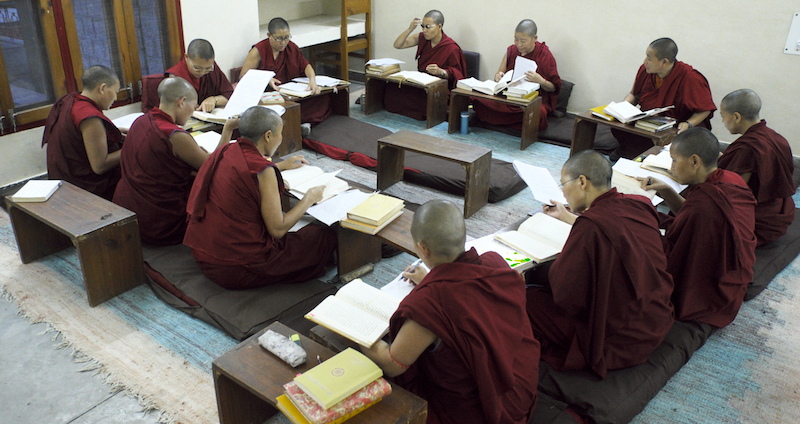
Senior nuns studying at Dolma Ling Nunnery and Institute. Photo courtesy of Brian Harris
Learn about our Current Projects here and how you can sponsor a nun here.
